Hey everyone,
A lot of you may have been wondering lately: who does this Amateur Gourmet guy think he is? I subscribed to this newsletter for roast chicken hacks, not to be hectored about some upcoming novel that Publisher’s Weekly calls “a rollicking debut!” Hey, I hear that. It’s like the time my favorite sitcom actress started hawking something called a “ThighMaster.” It was like: hey, Suzanne Somers, stay in your lane!
But for those of you who are interested in how this all came about, let’s rewind the tape more than twenty years.
Back in 2004, I had just graduated law school, when I gained admittance to the Dramatic Writing Program at NYU Tisch. My masters thesis was overseen by Pulitzer Prize-winner Marsha Norman, who not only set the theater world on fire with her play Night, Mother, but she wrote the books for the musicals The Secret Garden and The Color Purple.
It’s safe to say that Marsha loved my baking more than my dramatic writing. Every week, I’d bring in a different treat — Nancy Silverton’s caramel corn, this flourless chocolate cake — and she would “ooh” and “ahh.” But when it came to my play, The Fall of the Family Felderbaum (that really was the name of my master’s thesis play), she bit more than her tongue.
I could tell that the play frustrated her because of how undisciplined it was. At the time, I told myself she just didn’t get it because the play was much more inspired by the absurd stylings of Christopher Durang (who, ironically enough, she co-taught with at Julliard).
But looking back, I know that she was right. What it came down to — what all writing comes down to, eventually — was structure. I refused to learn or understand structure. I thought that good writing meant free-associating: my favorite writers at the time (everyone from George Saunders to Joe Orton) seemed to let their minds roam free, to let anything happen, to shirk all rules and regulations about what constituted a good story. But I see now that the opposite is true: these writers used structure to enhance and amplify their madcap worlds.
Meanwhile, while all of this was happening, my food blog took off. I sold my first book of essays. I got a job hosting a web show for The Food Network. I wrote my first cookbook featuring fifty famous chefs.
So I figured: screw dramatic writing! I’m a food writer now. I just have to describe the taste of roasted broccoli and I’m cool.
Only, I never shook the instinct to tell stories. For the past twenty years, I’ve been secretly writing plays, short stories, pilots, and screenplays that the world has never seen. Some of these helped me get my first agent which led to a job writing for a TV show called The Real O’Neals.
All along, I’ve been studying and learning structure. A book that helped me more than any other is called The Writer’s Journey: Mythic Structure for Writers by Christopher Volger (recommended by my friends Mark and Diana) which uses Joseph Campbell’s theories of “the hero’s journey” to illuminate storytelling. There are certain benchmarks — a call to adventure, a refusal of the call, a crossing of the threshold — that are helpful to have in mind as you set out to spin your tale.
My growth as a storyteller paralleled my growth as a cook. I began to notice similarities between the two disciplines. And the better I became in the kitchen, the better I became at the computer. Here are the five most important cooking/writing lessons that helped me on the road to selling my novel:
Learning patience. You can’t rush the process of making a spectacular dinner just like you can’t rush the process of writing a novel. Every step matters: seasoning the meat the night before, letting it come up to room temperature before you roast it, monitoring it while it cooks, letting it rest. Writing a chapter of a book can be the same way: you don’t just shove it in the oven. First you think about how it fits into the larger scheme, then you map out what needs to happen, then you write it in chunks (a thousand words a day), then you read it back and tweak it, then much later, when you’ve finished the first draft of the whole novel, you reexamine it, you rewrite it, polish it, rewrite it again, and again, and that’s all before your editor gets their hands on it. It takes a loooong time. And the end result is almost always worth it.
Mastering technique. In cooking and writing, there are techniques and the better that you get at them, the better that you understand them, the better you become as a writer and a chef. Take, for example, slicing an onion. There’s a right way and a wrong way: you slice the top off, but you leave the root end intact so the pieces hold together. You make sure your knife is sharp before you get in there and you form a wall with your knuckles so you don’t slice your fingers off. Compare this to writing dialogue. There’s a technique to it: you don’t just have your characters ramble on in endless blocks of text. There should be some kind of conflict, the conversation should move the story forward, not to mention be entertaining in and of itself. And to get even more technical: there’s the matter of when do you write “he/she said” vs. just letting the dialogue stand without attribution? There’s a rhythm to it, a logic to it. That’s technique.
Balance! Reading your work back to yourself is a lot like taking a taste of a soup you’ve been simmering for hours. What’s working? What’s not working? How do you fix it? Almost always it’s a question of balance: just like vinegar is often the missing element — that essential hit of acid — the missing ingredient in writing is often conflict. Is there enough of it? What do your characters want? What’s stopping them from getting it? Or it could be as simple as the scene isn’t funny enough. Or sharp enough. That same instinct that tells you “this needs more salt” is operating when you reread your work.
Knowing your audience. Cooking for a specific group of people is easier than cooking for a group of unknowns. If your family’s coming over, or your best friend, you can shape the meal to fit their preferences: you know your sister loves pasta and her husband loves chocolate. Bingo: you’ve got a menu. Similarly, it’s harder to write without an audience in mind than it is to have a sense of who you’re writing for. When I was writing Food Person, I rewatched The Devil Wears Prada, read lots of Laurie Colwin and Nora Ephron, because I knew that was the target I was trying to hit. It’s funny how manifesting works because all of those things I referenced to write the book — Nora Ephron, Devil Wears Prada — are being invoked in the reviews, etc.
Doing it to please yourself. More than anything: you won’t love what you cook if it’s not something that you crave and you won’t love what you write if it’s not a story you feel the urge to tell. The best things that I’ve ever eaten are the things that I was most desperate to make. You know that feeling when you’ve come back from a long trip and you’re exhausted and every restaurant is closed, it’s 11 PM, so you just boil pasta and make a quick sauce with anchovies, garlic, olive oil, chili flakes, and Parmesan? That might be the best bite of food you’ll ever have. That sense of urgency, that sense of necessity, should compel your writing too. Food Person wouldn’t work if it was just me trying to write The Devil Wears Prada in the food world. What I was really writing about, I think, was my inner conflict about wanting to be a genuine writer with heart and authenticity and the realities of having to pay the bills. It’s also about being afraid to be your true self, the challenges of overcoming a well-meaning but domineering parent, the nature of friendship, the compromises that are worth making in your work and the ones that aren’t worth making. It’s a very personal book or I wouldn’t have been able to write it.
If you were looking for a roast chicken hack in today’s newsletter, sorry! Though I did see Lidia Bastianich make one on PBS this weekend with a wet rub of olive oil, garlic powder, lemon zest, and chopped fresh rosemary that looked really good.
If you’re an aspiring writer, I hope you found this helpful.
Writing is a rewarding/demanding discipline, just like cooking, and the more that you do it, the better you’ll get at it. That’s the ultimate lesson. Make time for it every day, and eventually — maybe twenty years later — you’ll be rewarded. Though, to quote August Wilson: “You’re entitled to the work, not the reward.” The real secret is that if you learn to find pleasure in cooking, to find pleasure in writing, that in and of itself is the reward.
Your friend,
Adam






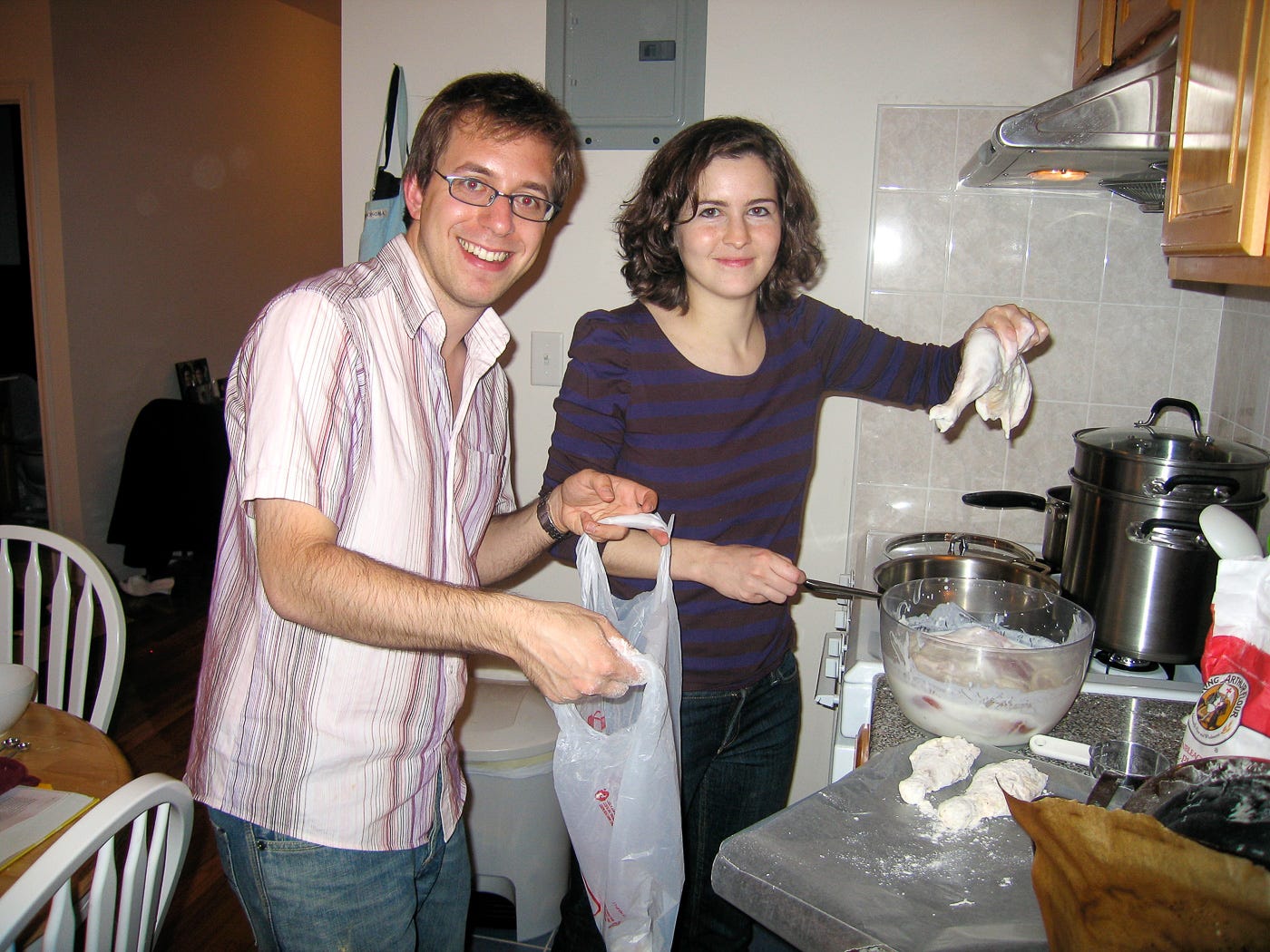
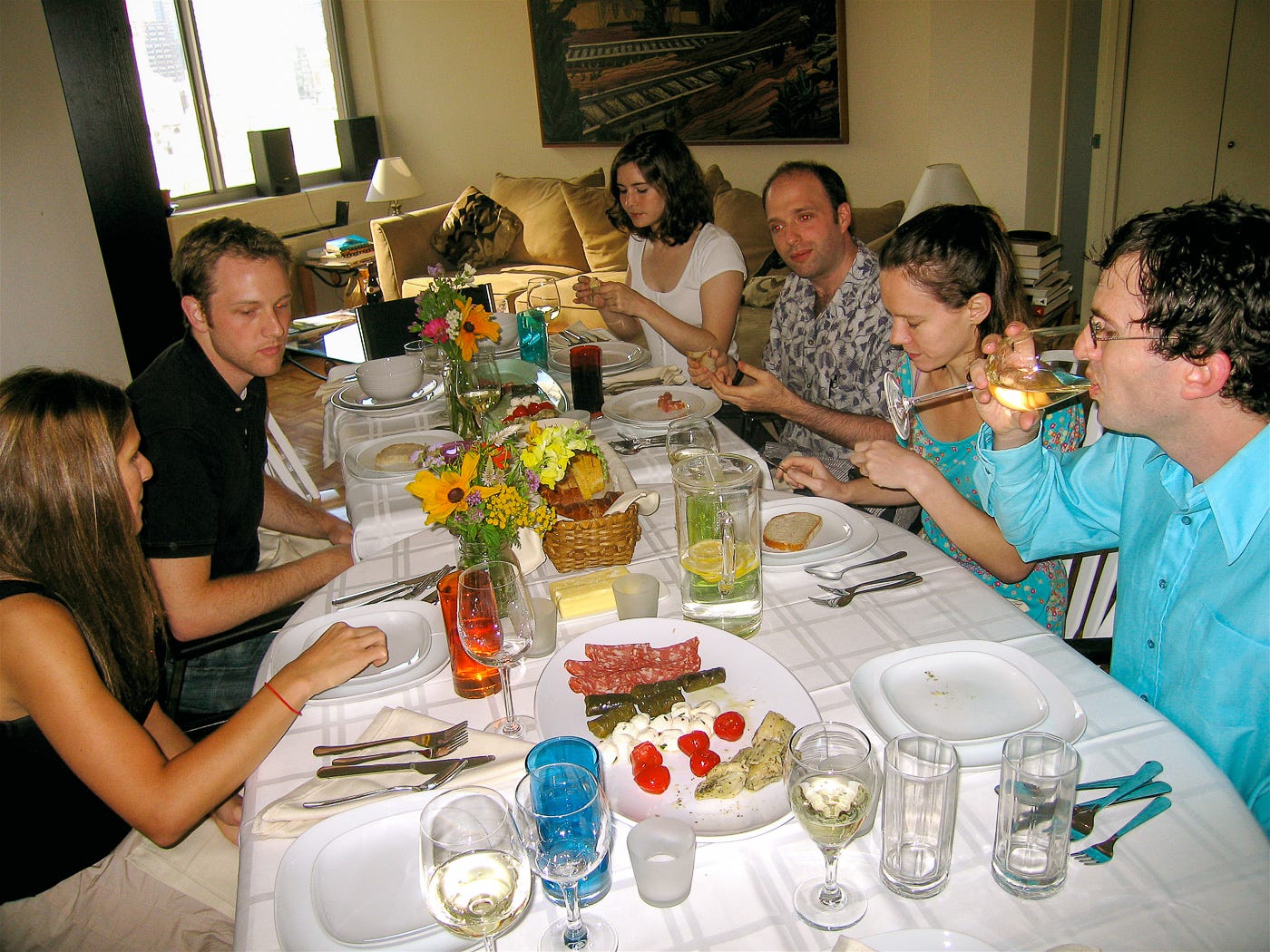


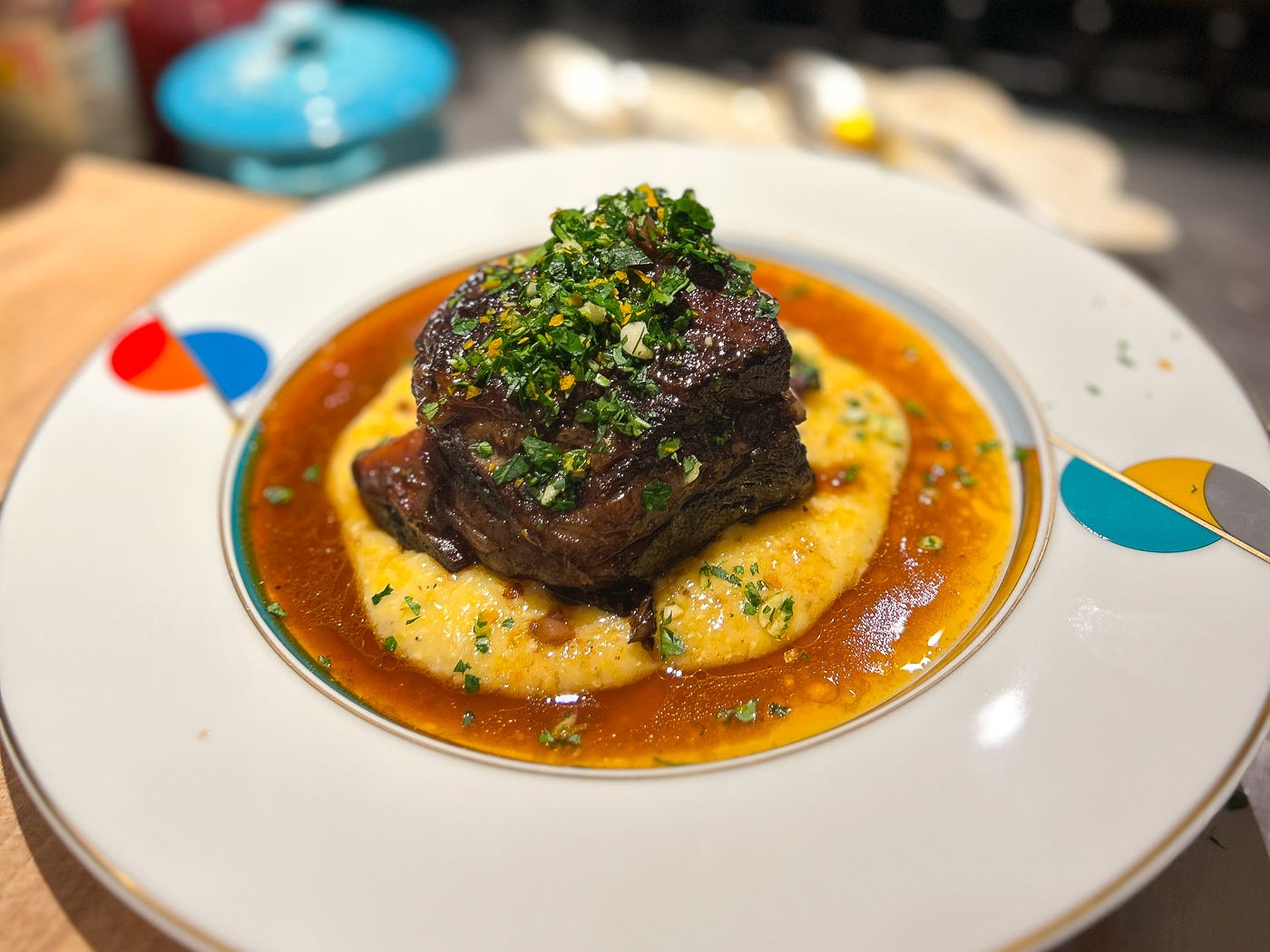
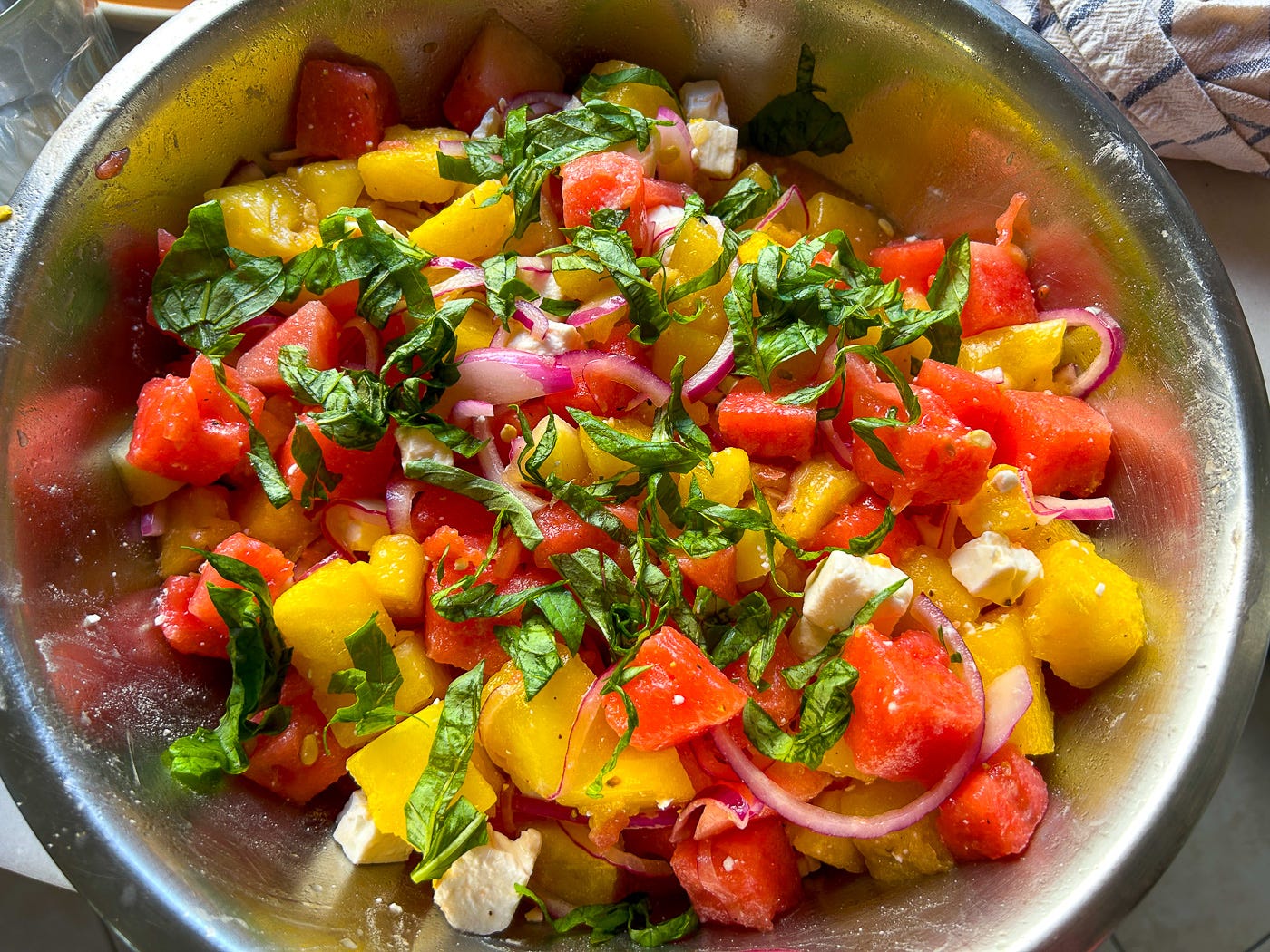
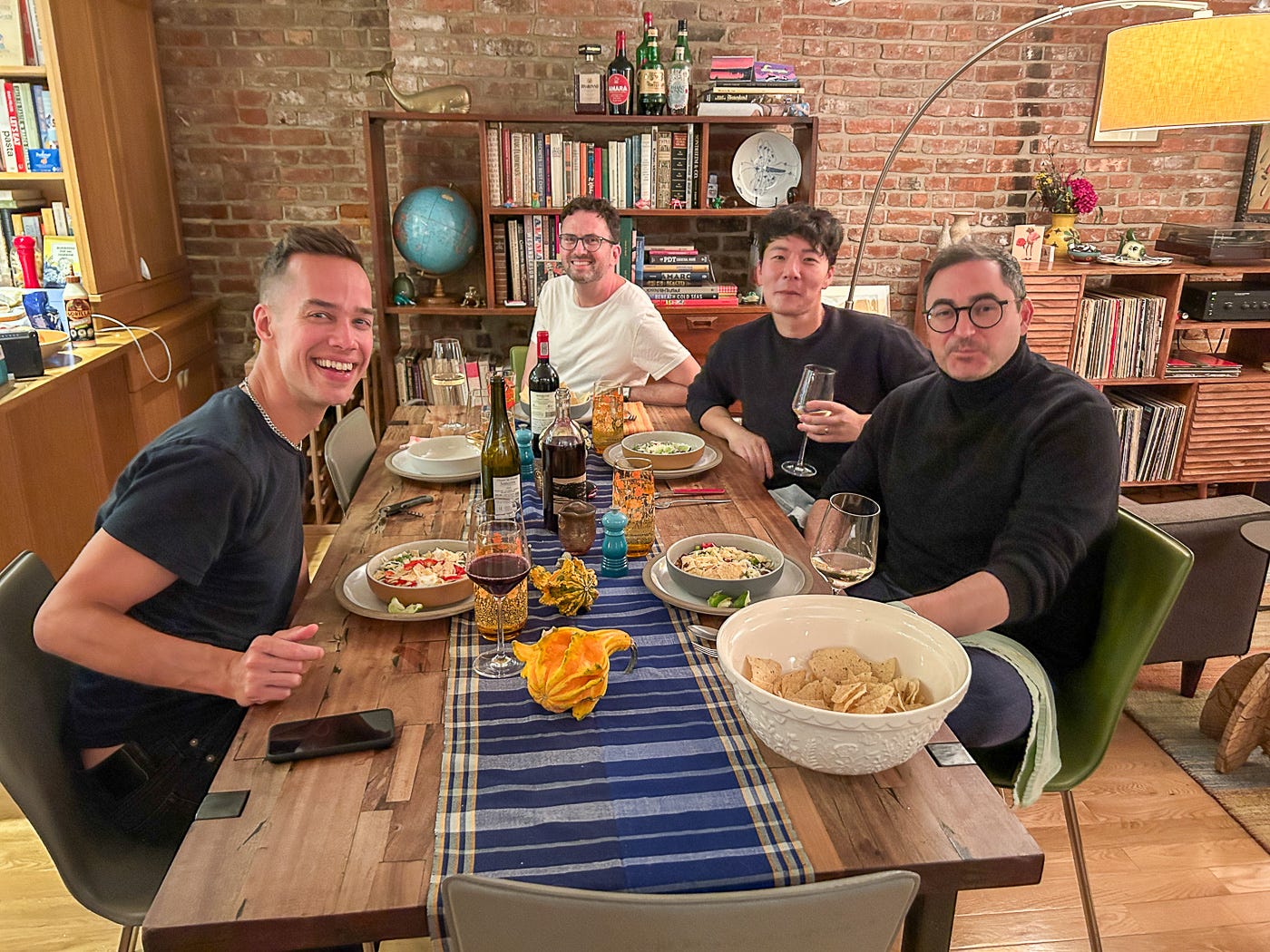
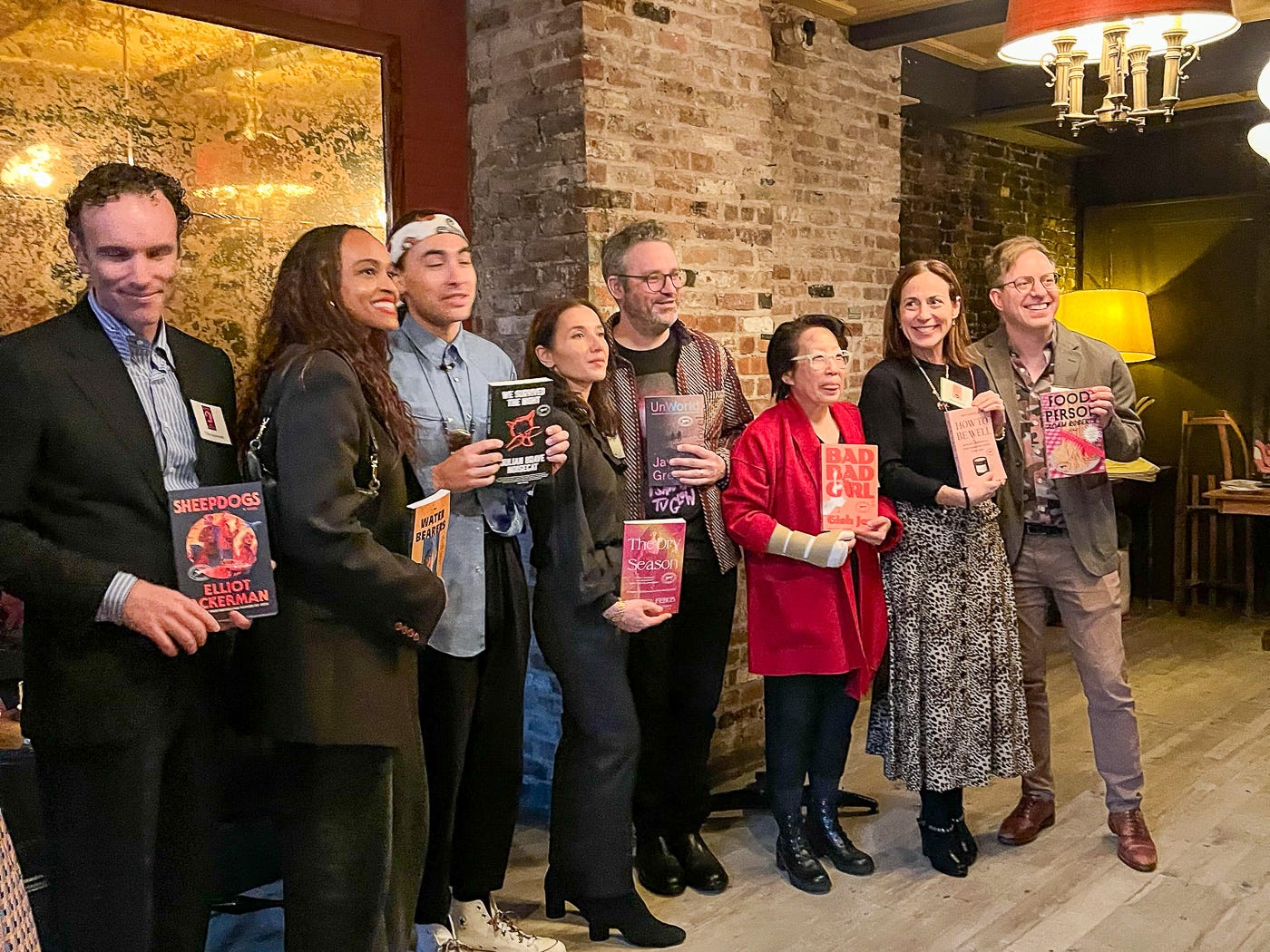
Loved this. Congrats, Adam!! Can't wait to read Food Person. xo
Adam, nearly 20 years since the Amateur Gourmet. God that ages me :). So excited to read your novel. You've part of an amazing food tradition with Knopf. I'm plotzing!